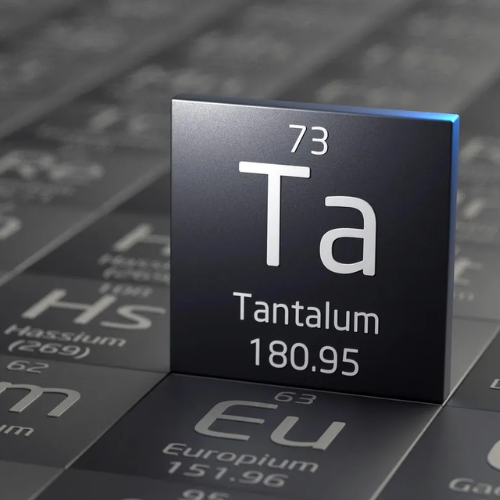In the middle of a long and tough war, an unexpected problem is quietly hurting one of the world’s most powerful armies. It’s not soldiers, tanks, or guns—it’s a rare metal called tantalum. Though few people have heard of it, tantalum is essential for making high-tech military equipment. And thanks to international sanctions and broken supply chains, Russia is now running low on this critical mineral. This shortage is making it harder for Russia to keep its advanced weapons working properly and could be a big problem for its war effort.
What Is Tantalum and Why Is It So Important?
Tantalum is a rare metal that looks bluish-grey and is very strong. What makes it special is that it can handle extreme heat, resist corrosion, and conduct electricity very well. Because of these unique features, tantalum is a key ingredient in tiny electronic parts called capacitors, which are used inside many modern gadgets.
You might find tantalum capacitors in your smartphone or laptop, but their most important use is in military technology. These capacitors help ensure that military computers, radar systems, and missiles work perfectly even under the toughest conditions—like extreme heat, fast speeds, and intense pressure.
In weapons, tantalum is found in many parts:
- Jet engines, where it helps metal blades resist damage from heat and wear.
- Missiles and rockets, where it endures intense heat during flight.
- Armor-piercing bullets, because it is very dense and hard.
- Military electronics, including targeting computers and secure radios.
Without this rare metal, these critical military components could fail, which would be dangerous in a battle.
Russia’s Heavy Dependence and the Impact of Sanctions
Russia’s military depends heavily on tantalum. Many of its advanced weapons—like the T-72 B3 tanks, Kh-47M2 Kinzhal missiles, 9M727 cruise missiles used in the Iskander-K system, and drones like the Supercam series—use this rare metal parts. But Russia doesn’t produce enough of this metal inside the country. Instead, it relies mostly on buying this rare metal from other nations, including the Democratic Republic of Congo, Brazil, Rwanda, China, and companies like Kyocera AVX, a Japanese-American electronics firm.
However, international sanctions have made it very hard for Russia to get tantalum from these sources. Some countries, including Kazakhstan—which previously supplied Russia with processed tantalum powder—have joined the sanctions and stopped selling it. This has left Russia struggling to get enough of the rare metal to keep making its weapons.
Russia has tried to buy tantalum from China, but the quality has not been good enough for military use. This means Russia must either find other suppliers or try to produce more at home, but their local mines are small and not very productive.
What This Means for Russia’s War Machines
Because tantalum is so crucial, the shortage is causing serious problems for Russia’s military industry. Factories that make advanced weapons need about 1,700 pounds of pure tantalum every month to keep up production. But right now, they only have about half of what they need.
Hanoi’s Nuclear Leap: Vietnam Bets Big on Russian Reactors — West Watches With Growing Unease
This shortage is already visible on the battlefield. Russia has lost many modern armored vehicles and is forced to use old Soviet tanks from storage or even unarmored civilian vehicles like vans and golf carts. This is risky and leads to more casualties.
Meanwhile, Ukrainian forces are gaining the advantage, especially with drones that outperform Russian models. The lack of tantalum makes it harder for Russia to produce the electronics that control weapons and communications.
Even worse, Russia’s main facility for processing tantalum powder was in Kazakhstan, and since the sanctions, that supply chain has been cut off. Russia’s attempts to get tantalum through black markets or other indirect ways are slow and expensive, making the situation worse.
Some recent claims from Russia suggest they might have found ways to ease the shortage a little, planning to produce hundreds of Kh-101 air-launched cruise missiles this year. But experts warn that just having raw ore isn’t enough—it needs to be refined carefully to be used in electronics, and that’s a big challenge under current conditions.

